Health Communication Webinar

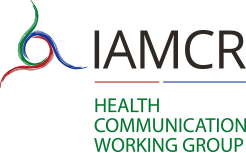 The Health Communication Working Group aims to provide a forum for critical thinking on health communication as well as knowledge translation from praxis related interpretative health communication. It emphasizes social change with a recognition and respect for local knowledge and beliefs and challenging the dominant understandings of health and health communication frameworks. It encourages dialogue between disciplines, such as communication and media studies, public health, sociology, anthropology, psychology and cultural studies, and between researchers and practitioners. It aims to create a network of researchers who share knowledge, ideas, methodologies, and research outcomes as well as develop international collaborative projects in the health communication space.
The Health Communication Working Group aims to provide a forum for critical thinking on health communication as well as knowledge translation from praxis related interpretative health communication. It emphasizes social change with a recognition and respect for local knowledge and beliefs and challenging the dominant understandings of health and health communication frameworks. It encourages dialogue between disciplines, such as communication and media studies, public health, sociology, anthropology, psychology and cultural studies, and between researchers and practitioners. It aims to create a network of researchers who share knowledge, ideas, methodologies, and research outcomes as well as develop international collaborative projects in the health communication space.
Co-Chair: Sayyed Fawad Ali Shah (Auburn University, United States) [Contact]
Co-chair: Eliza Govender (Centre for Communication, Media and Society (CCMS), University of KwaZulu-Natal, South Africa) [Contact]
Vice-Chair: Adebayo Fayoyin (Caleb University, Nigeria / University of Witwatersrand, South Africa) [Contact]
Vice chair: Monique Lewis (Griffith University, Australia) [Contact]
See the list of all current members of the Health Communication Working Group.
To join the Health Communication Working Group, login to your account and select My Sections and Working Groups from the menu. A number of IAMCR sections and working groups send notices and other information exclusively to their members. IAMCR members can join up to three sections or working groups.

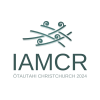
IAMCR's Health Communication Working Group invites submissions for IAMCR 2024, which will be held in Christchurch, New Zealand, from 30 June to 4 July 2024. The deadline for submission is 7 February 2024, at 23.59 UTC.

The Health Communication Working Group (HEC) will be holding online elections for two co-chair and two vice-chair positions, for the term 2023 - 2027. The deadline to submit candidacies is 17 May.
IAMCR's Health Communication Working Group invites proposals for IAMCR 2023, to be held in Lyon, France, from 9 to 13 July (Lyon23) with an Online Conference Papers (OCP23) component from 26 June to 5 July. The deadline for submission is 9 February 2023, at 23.59 UTC.

IAMCR's Health Communication Working Group invites the submission of proposals for papers and panels for IAMCR 2022, which will be held online from 11 to 15 July 2022. The conference will also have a national hub at Tsinghua University in Beijing. The deadline for submission is 9 February 2021, at 23.59 UTC.
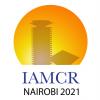
IAMCR's Health Communication Working Group invites the submission of proposals for single papers and multi-paper sessions (the online conference equivalent of a panel in a face to face conference) for IAMCR 2021, which will be held online from 11 to 15 July, with a regional hub in Nairobi, Kenya. The deadline for submission is 9 February 2021, at 23.59 UTC.

IAMCR's Health Communication Working Group invites the submission of abstracts of papers and proposals for panels for the 2020 conference of the Association, which will be held from 12 to 16 July, 2020 at Tsinghua University in Beijing, China.
The IAMCR’s Health Communication Working Group will run elections for 4 chairs (2 Chairs and 2 Co-chairs) positions during its business meeting at IAMCR 2019 in Madrid, Spain.

The International Association for Media and Communication Research (IAMCR) will hold its annual conference from 20-24 June 2018 at the University of Oregon in Eugene, Oregon, USA.
The International Association for Media and Communication Research (IAMCR) will hold its annual conference from 16-20 July, 2017 in Cartagena, Colombia.
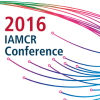
The Health Communication & Change and Communication & HIV/AIDS Working Groups of the International Association for Media and Communication Research (IAMCR) invites submissions for its open session at next year’s conference, to be held in Leiceste
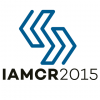
The Health Communication and Change and HIV and AIDS Communication Working Groups invites submissions of abstracts for papers for the 2015 IAMCR conference to be held from 12-16 July, 2015 at Université du Québec à Montréal (UQAM), Montreal, Canada.
 Communication and HIV/AIDS and Health Communication and Change Working Groups – Call for Papers
Communication and HIV/AIDS and Health Communication and Change Working Groups – Call for PapersThe Communication and HIV/AIDS and the Health Communication and Change Working Groups of the International Association for Media and Communication Research (IAMCR) welcome the submission of papers for the Conference to be held in Hyderabad, Andhra Pradesh, India between 15-19 July, 2014.
 The World Health Organization (WHO) has been fore-warning about the effects of the economic crisis on the global health care system and delivery mechanisms. Since the economic crisis deepens social inequalities, it is necessary to ensure that health remain equally accessible to all. However, many countries are trying to protect their own national economies, at the expense of the health care system if necessary. Ensuring access to health and promoting the right to health, in the context of the crisis conditions will therefore require negotiation between social actors, economic systems, and commitment from local, national, and international actors.
The World Health Organization (WHO) has been fore-warning about the effects of the economic crisis on the global health care system and delivery mechanisms. Since the economic crisis deepens social inequalities, it is necessary to ensure that health remain equally accessible to all. However, many countries are trying to protect their own national economies, at the expense of the health care system if necessary. Ensuring access to health and promoting the right to health, in the context of the crisis conditions will therefore require negotiation between social actors, economic systems, and commitment from local, national, and international actors.
 The Communication and HIV/AIDS Working Group and the Health, Communication and Change Working Group of the International Association for Media and Communication Research (IAMCR) welcome the submission of papers for the 2012 Conference to be held in Durban, South Africa from July 15-19, 2012 at the Howard College Campus of the University of KwaZulu-Natal (UKZN).
The Communication and HIV/AIDS Working Group and the Health, Communication and Change Working Group of the International Association for Media and Communication Research (IAMCR) welcome the submission of papers for the 2012 Conference to be held in Durban, South Africa from July 15-19, 2012 at the Howard College Campus of the University of KwaZulu-Natal (UKZN).
The theme of the conference, ‘South-North Conversations’, reflects the inherent asymmetries in communication flows between the developed and the developing nations.
Wider understandings of ‘developed- developing- underdeveloped’ countries in transition as well as the ‘core-periphery’ are changing. It can be evidenced by BRICS (Brazil-Russia-India-China-South Africa), the ‘African Renaissance’ and the African Union. We cannot, therefore, continue to assume that communication and media – seen in terms of value and meaning systems, historical trajectories, monetary and technological transfers – can continue to be seen as they have been in the past.
 The Health Communication and Change Working Group of the IAMCR is calling for papers for the 2011 conference in Istanbul, Turkey, 13-17 July. The conference theme is ‘Cities, Connectivity & Creativity’.
The Health Communication and Change Working Group of the IAMCR is calling for papers for the 2011 conference in Istanbul, Turkey, 13-17 July. The conference theme is ‘Cities, Connectivity & Creativity’.
The Health Communication and Change Working Group is a forum for critical thinking and examination of health communication theory and practice that moves thinking beyond behaviour change and toward social change. We encourage conceptual papers that focus on epistemology, theory and methodology in health communication.
 IAMCR’s General Assembly accepted in July 20082008 the establishment of a new working group in IAMCR: Health Communication and Change. This working group will meet for the second time during the IAMCR 2010 Conference in Braga, Portugal, 18-22 July 2010. The overall IAMCR-conference theme is 'Communication and Citizenship. Rethinking Crisis and Change'.
IAMCR’s General Assembly accepted in July 20082008 the establishment of a new working group in IAMCR: Health Communication and Change. This working group will meet for the second time during the IAMCR 2010 Conference in Braga, Portugal, 18-22 July 2010. The overall IAMCR-conference theme is 'Communication and Citizenship. Rethinking Crisis and Change'.
It is in this light that we now invite papers for this new working group on health communication and change.
 IAMCR’s new working group in Health Communication and Change is inviting submissions for the IAMCR 2009 Conference in Mexico City. The theme of the conference is "Human Rights and Communication".
IAMCR’s new working group in Health Communication and Change is inviting submissions for the IAMCR 2009 Conference in Mexico City. The theme of the conference is "Human Rights and Communication".
Health Communication as a scientific discipline has grown significantly in the past years, establishing itself institutionally with academic courses and programmes worldwide. Traditionally. its focus was on individual behaviour change, with behaviour change communication as a central approach. The theoretical emphasis has primarily been on psychological and social-psychological issues rather than on communication issues.